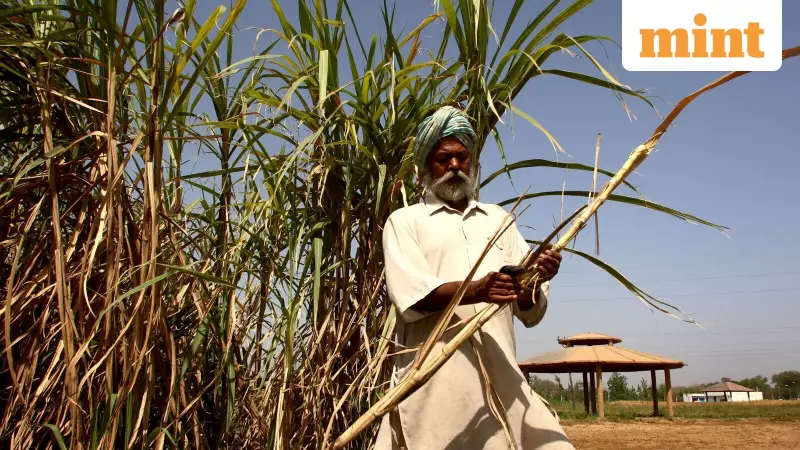
Government Eases Export Restrictions, Sparks Sugar Sector Rally
India's sugar industry received a significant boost this week as the government announced major policy changes aimed at revitalizing the sector. Share prices of sugar companies surged dramatically on Monday, with several firms recording substantial gains following the government's decision to increase export allocations and remove key trade barriers.
The most notable development came with the increase of annual sugar export allocation to 1.5 million tonnes, a move that immediately sent positive signals across the industry. Additionally, the government eliminated the 50% export duty on molasses, a valuable by-product of sugar manufacturing that has gained increasing importance in recent years.
Addressing Inventory Glut and Policy Review
These policy adjustments come at a critical time for India's sugar sector, which has been grappling with piling inventory levels after earlier plans to divert sugar for ethanol production fell short of expectations. The inventory buildup had created significant pressure on domestic prices and storage capacities across sugar-producing states.
More importantly, the government has initiated a comprehensive review of the law regulating sugarcane production, as reported by Mint. This development represents a crucial step toward modernizing India's sugar sector regulations, which were established during an era when sugar was the primary product derived from sugarcane.
Modernizing Outdated Regulations for Diversified Industry
The current regulatory framework governing sugarcane production has become increasingly outdated as the industry has diversified beyond traditional sugar manufacturing. Today, sugarcane serves as raw material for multiple products including:
- Ethanol production for fuel blending programs
- Electricity generation through cogeneration plants
- Molasses for industrial and chemical applications
- Various other by-products and value-added derivatives
This diversification necessitates a revamped legal framework that can ensure farmers receive fair prices for their produce based on the specific end-use of their sugarcane. The existing system fails to account for the different value propositions offered by these varied applications.
The removal of export barriers represents a significant shift from previous policy approaches, where export controls were frequently used as regulatory tools. Many industry experts view these controls as relics from India's pre-liberalization era that have outlived their usefulness in today's globalized market environment.
By allowing businesses greater freedom to respond to international price signals and market conditions, the government is taking important steps toward creating a more dynamic and responsive sugar sector. The reduced interference in export markets should enable Indian sugar producers to better capitalize on favorable global pricing conditions while managing domestic supply more effectively.
As the government continues its review of sugarcane regulations, the industry watches closely for signs of more comprehensive reforms that could fundamentally reshape how India manages one of its most important agricultural sectors. The success of these measures will ultimately be judged by their ability to deliver fair prices to farmers while ensuring the long-term competitiveness and sustainability of India's sugar industry.






